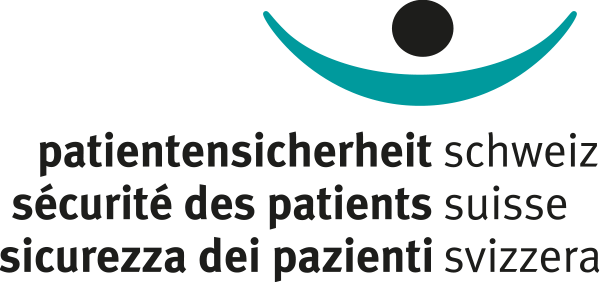
Breast cancer
Do you have any questions? Benefit from personal advice on second medical opinion and choice of hospital:
+41 41 228 09 94
Finding a lump in the breast is initially a shock to a woman, triggering fears and worries. If the cancer diagnosis is confirmed, it can turn her life upside down for a certain period. It is good to know that the first appearance of localised breast cancer can be treated with good chances of recovery. There are also a variety of treatment and support opportunities.
There are still many questions left regarding the risk factors and triggers of breast cancer. In retrospect, it is not possible to identify a single cause of tumour development in breast cancer patients. However, certain factors are known to contribute to the development of breast cancer:
-
Long-term exposure to oestrogens: for example, due to an early first menstruation, a late last menstruation, childlessness, motherhood after the 30th year of age or combined hormone therapy during menopause
-
Family or genetic predisposition: In some families, breast cancer occurs more often.
-
Age: Four out of five breast cancer patients are over 50 years of age when diagnosed.
-
Unhealthy lifestyle: To little dietary fibre, too much fat, too little exercise, or overweight
-
Combination of tobacco and excessive alcohol consumption.
-
Earlier radiation of the breast region.
As part of a breast cancer screening programme, women between 50 and 69 (74, in some cantons) are offered an examination (mammography), even if they show no signs of breast cancer. By this means, a disease should be detected early, even before symptoms appear in the affected persons. The chances of recovery can increase, a gentler therapy can be implemented, or preventive measures can be improved by means of an early diagnosis.
This means that for these women undergoing the exam, the total benefits (early diagnosis of cancer and treatment) are greater than the possible risks (radiation exposure, misdiagnosis, overtreatment). It is important, however, that you participate in a quality-controlled early detection program organised by specially qualified institutions and individuals.
Therefore, go to the website swisscancerscreening.ch (available in German, French and Italien) or check with your family doctor to find out if a breast cancer early detection program is available in your canton of residence.
Your guides:
Your checklist:
Further information:
Your doctor will conduct the following examinations by means of:
-
Inquiry regarding complaints and symptoms (anamnesis)
-
Palpation of the chest, armpits and collarbone area
-
Mammography (x-ray of the breast)
-
Ultrasound
-
In case of any suspicion of cancer: biopsy, in order to be able to examine the tissue
It is known that the best results in the operation and treatment of a disease are achieved in hospitals with a high number of cases.
CONCORDIA has commissioned the institute B,B,S. Economic Consultants in Basel to evaluate the treatments and operations for breast cancer in all Swiss acute care hospitals – independently, neutrally, and according to statistical quality criteria.
The quality of inpatient treatment was assessed, along with the length of stay and the hospital costs.
-
During a personal conversation, we will show you, on the basis of the results, which hospitals throughout Switzerland have excelled over the years in the treatments and operations for breast cancer in terms of quality and efficiency.
-
Use our consulting offer to find out which hospital is most suitable for your treatment.
-
Naturally, you still have the choice of when and where you would like to be treated, in line with your basic and supplementary insurances.
Tumour board: Collective knowledge
A tumour board is a committee that brings together specialists from various medical disciplines to discuss the clinical situation of patients suffering from cancer and to set up an optimal treatment plan.
In addition, for operations and treatments of breast cancer, we recommend a second medical opinion. This way, you can learn about additional treatment options. If you are covered by a hospital insurance at CONCORDIA, a second medical opinion is free of charge if you apply for it via the Lucerne Cantonal Hospital (LUKS).
Exactly what form rehabilitation and aftercare will take for persons with breast cancer depends on the treatment, the prognosis and their state of health.
Physical recovery and rehabilitation are in the foreground, but the psychological stress must be processed. Pain can be relieved in most cases.
These are the other key aspects of aftercare:
-
Outpatient oncological follow-up checks with therapy recommendations from conventional medicine, and possibly from complementary medicine or palliative care (to provide relief from the disease)
-
Possible rehabilitative measures to maintain or support your physical and psychological health
-
In the event of non-breast-conserving operations: clarification of the need to use an external prosthesis
-
Living with a chronic illness requires very good self-management in order to be able to successfully master the various challenges in everyday life. concordiaCoach can support you in finding good solutions.
-
Get vaccinated against influenza in good time before the flu season. The best time is between mid-October and mid-November.
-
Do not hesitate to seek medical help if symptoms or complaints of any kind arise, regardless of whether a follow-up appointment is due or not.
Your guides:
Further information:
Give us your feedback: What experiences have you had with the CONCORDIA Health Compass? Do you have questions about using it?
What suggestions do you have for us? Or maybe you didn't find what you were looking for?
Call us on +41 41 228 09 94. Or write your message to healthcompass@concordia.ch.
We would be happy to provide further assistance.





